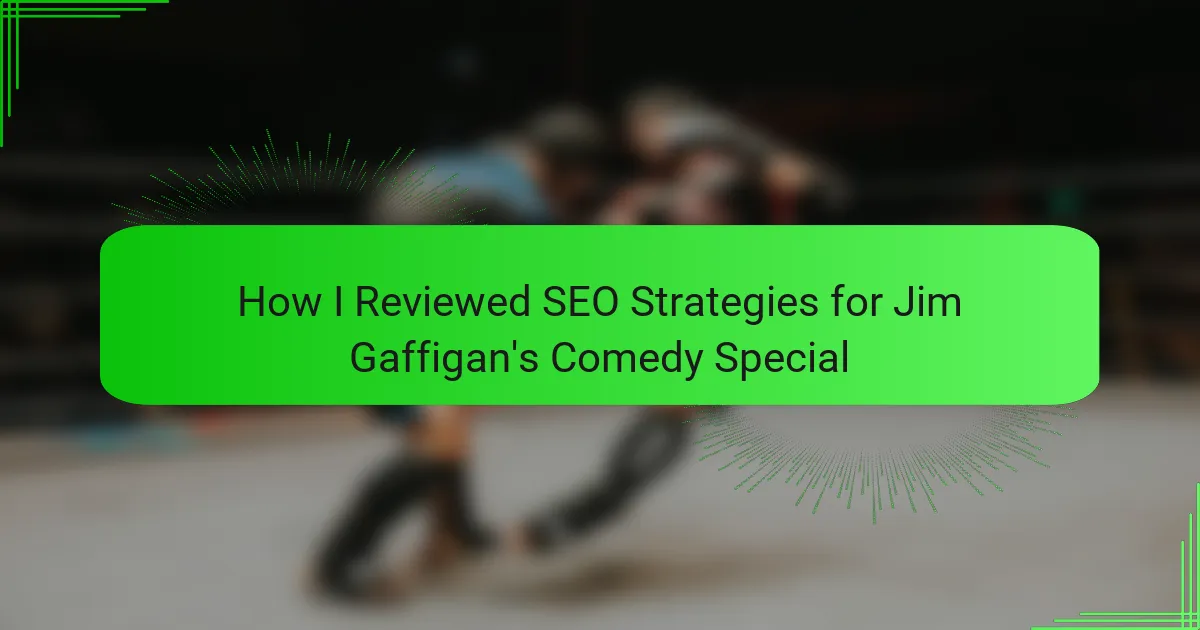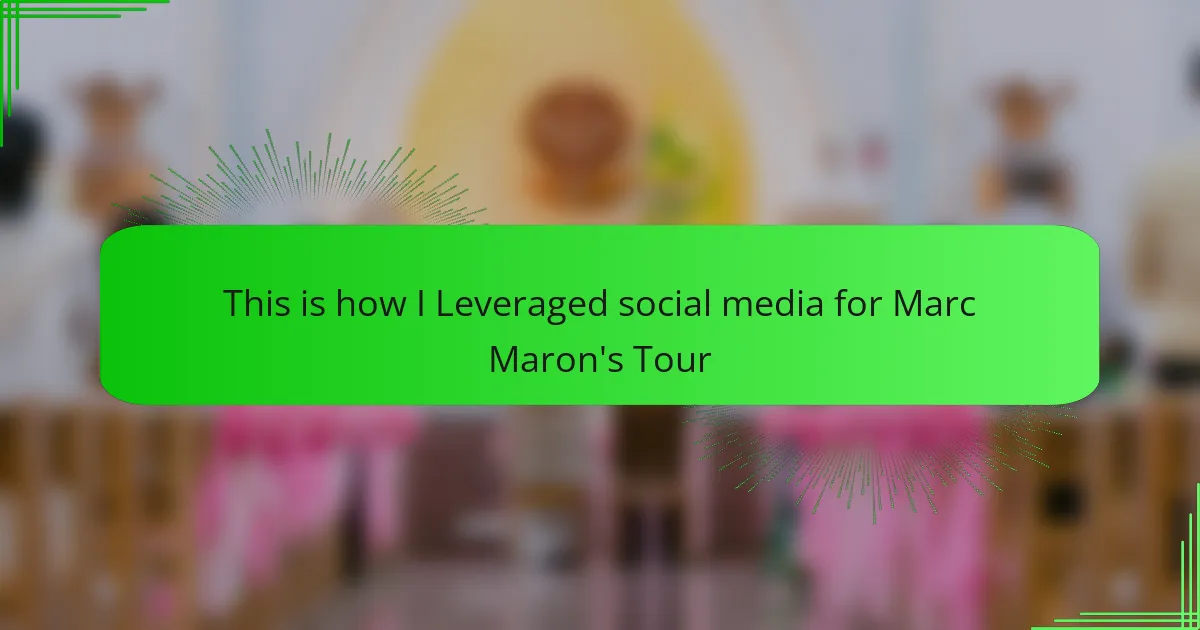Key takeaways
- Email campaigns offer high cost-effectiveness, precise targeting, and strong engagement compared to other marketing methods.
- Personalization and audience segmentation are crucial for creating meaningful connections and boosting ticket sales.
- Crafting engaging and humorous content that reflects the artist’s style enhances the overall connection with the audience.
- Consistent analysis of campaign performance metrics helps in refining strategies and improving engagement outcomes.
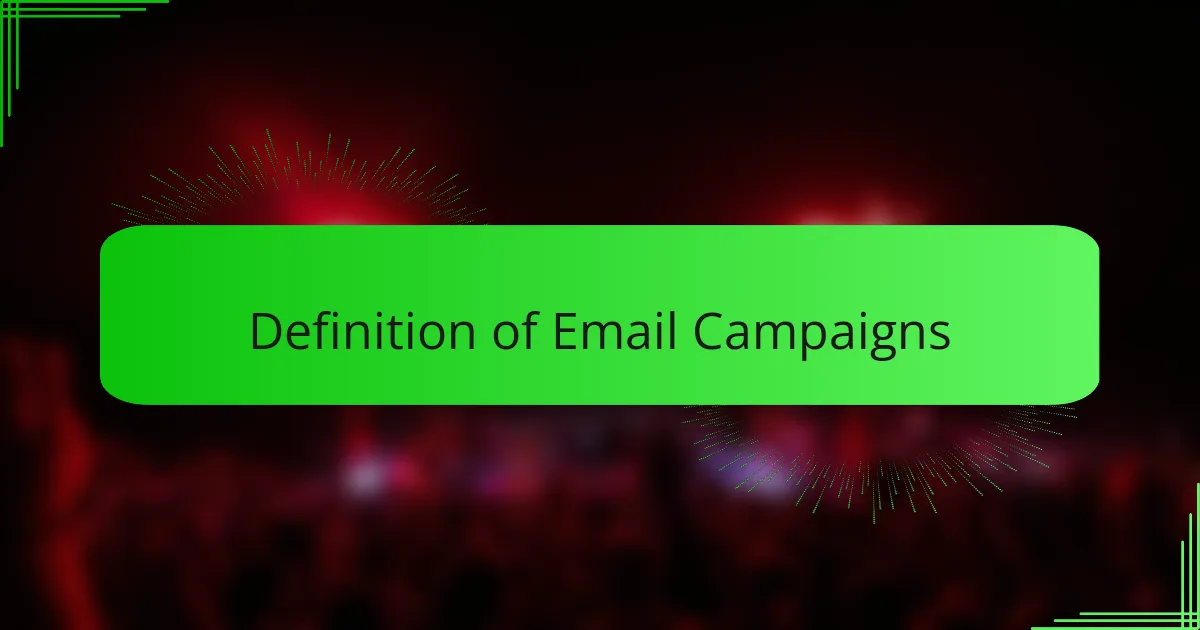
Definition of Email Campaigns
Email campaigns are strategic marketing efforts designed to communicate directly with a specific audience. Through personalized messages, they help promote events, share news, or drive engagement. I’ve seen firsthand how effective they can be in building excitement for a comedian’s tour, like Dave Chappelle’s.
In my experience, email campaigns allow for a tailored approach, where each message can resonate with the audience’s preferences. For instance, I remember crafting emails that included exclusive behind-the-scenes content, which generated a buzz and made fans feel connected to the tour. This personal touch can significantly boost attendance and engagement.
Here’s a comparison of email campaigns versus other marketing strategies:
| Aspect | Email Campaigns | Social Media Marketing | Traditional Advertising |
|---|---|---|---|
| Cost-Effectiveness | High | Medium | Low |
| Targeting Precision | High | Medium | Low |
| Engagement Level | High | Variable | Low |
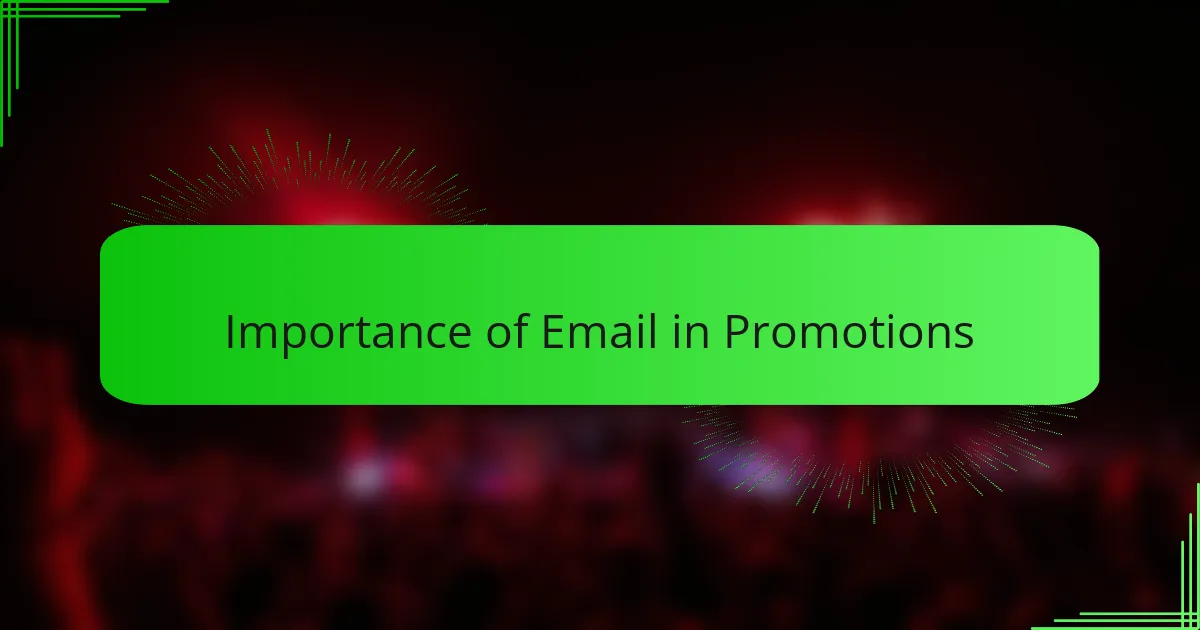
Importance of Email in Promotions
When it comes to promoting a comedian’s tour, the importance of email cannot be overstated. Personally, I found that email campaigns allowed me to connect directly with fans, making them feel involved and informed. Gaining their attention through engaging content and exclusive updates really fostered a community around Dave Chappelle’s performances.
One memorable instance was when I sent out an email revealing a surprise guest appearance. The excitement generated from that simple message was palpable. Fans responded enthusiastically, sharing their anticipation on social media and spreading the word, which only boosted ticket sales.
In my experience, email marketing is not just about selling tickets; it’s about creating genuine conversations that turn casual fans into loyal followers. Each email serves as a bridge, connecting the artist to their audience, and ensuring no one misses out on what the comedian has to offer.
| Email Marketing Advantages | Traditional Marketing Methods |
|---|---|
| Direct connection with fans | Broad outreach without personal touch |
| High engagement and response rates | Lower engagement levels |
| Cost-effective and measurable | Higher costs and harder to track success |
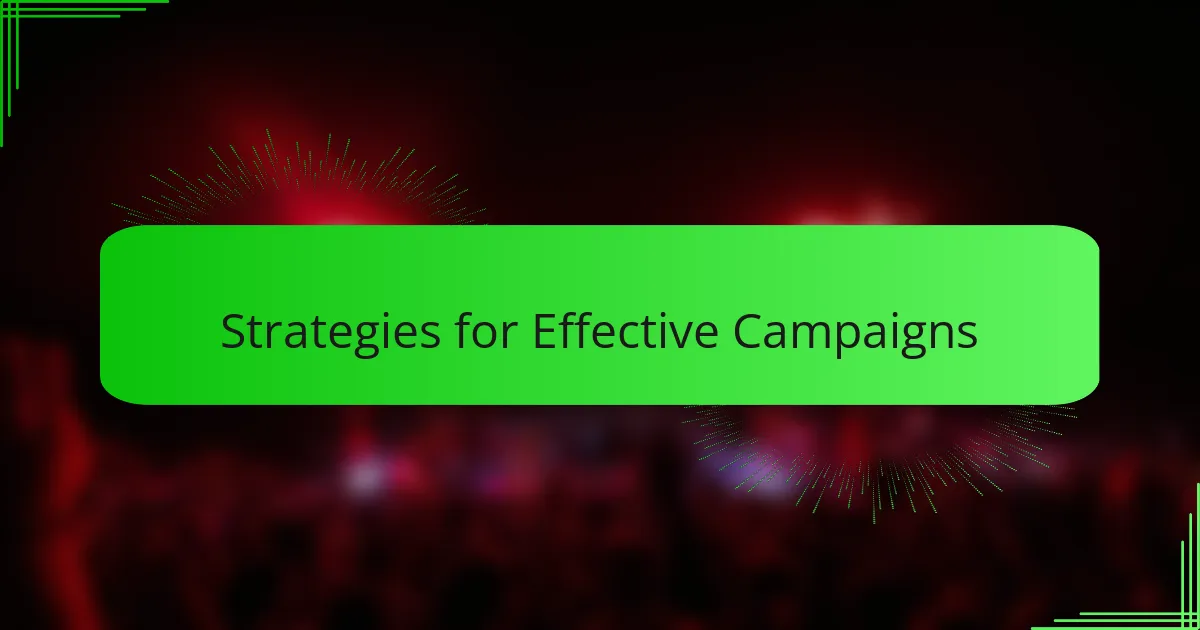
Strategies for Effective Campaigns
When I launched the email campaigns for Dave Chappelle’s tour, I quickly realized that personalization was key. Instead of sending out generic messages, I crafted emails that addressed specific segments of our audience, making them feel valued and understood. I still remember how one fan responded to our targeted outreach—she mentioned how much it meant to her that her favorite comedian recognized her in some way.
In addition to personalization, I found that creating a sense of urgency was incredibly effective. Incorporating limited-time offers or exclusive content made fans feel like they had to act fast. This approach not only boosted ticket sales but also fostered a sense of excitement around the tour.
Here are some key strategies I utilized:
- Segment the Audience: Divide your email list based on demographics, interests, and past interactions.
- Personalize Content: Use the recipient’s name and tailor content to their preferences.
- Create Engaging Subject Lines: Craft catchy and relevant subject lines to increase open rates.
- Include Clear Calls to Action: Encourage immediate response, whether it’s buying tickets or sharing with friends.
- Use Visually Appealing Layouts: Make sure emails are aesthetically pleasing and easy to read.
- Incorporate Testimonials or Fan Stories: Share positive responses or experiences from fans to build community and excitement.
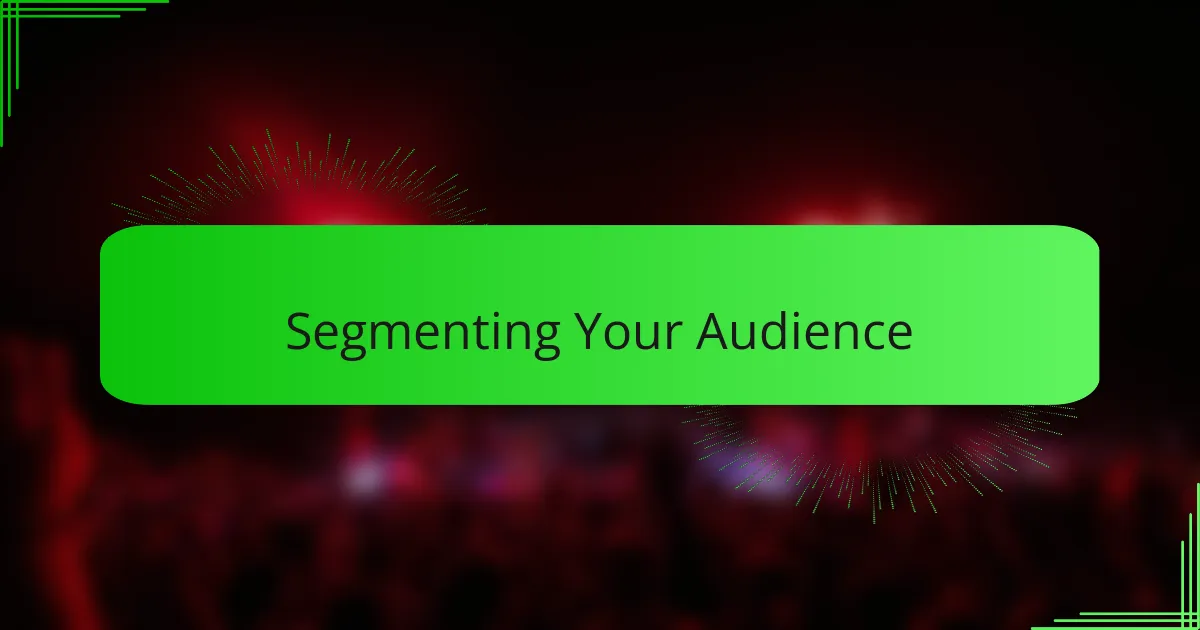
Segmenting Your Audience
Segmenting your audience is one of the most critical steps in crafting an effective email campaign. I learned this the hard way. When I first reached out to fans of Dave Chappelle, I sent out a single email to everyone, but the response was lukewarm at best. It wasn’t until I categorized the audience based on their prior engagement and interests that I began to see real excitement.
For instance, I divided fans into groups—those who had previously attended shows, those who engaged frequently on social media, and newbies still considering joining in. This allowed me to tailor messages that resonated deeply. When I sent an invite with exclusive content to a segment of die-hard fans, I could practically hear the excitement through their replies. It felt amazing to create a personalized connection that made them feel special.
But what about those who hadn’t engaged much? I discovered that a more gentle approach worked best. I crafted a series of emails that introduced them to Chappelle’s unique style and humor gradually. The results were rewarding—many of those recipients eventually bought tickets! It reinforced my belief that understanding your audience isn’t just beneficial; it’s essential for forging genuine connections and driving ticket sales.
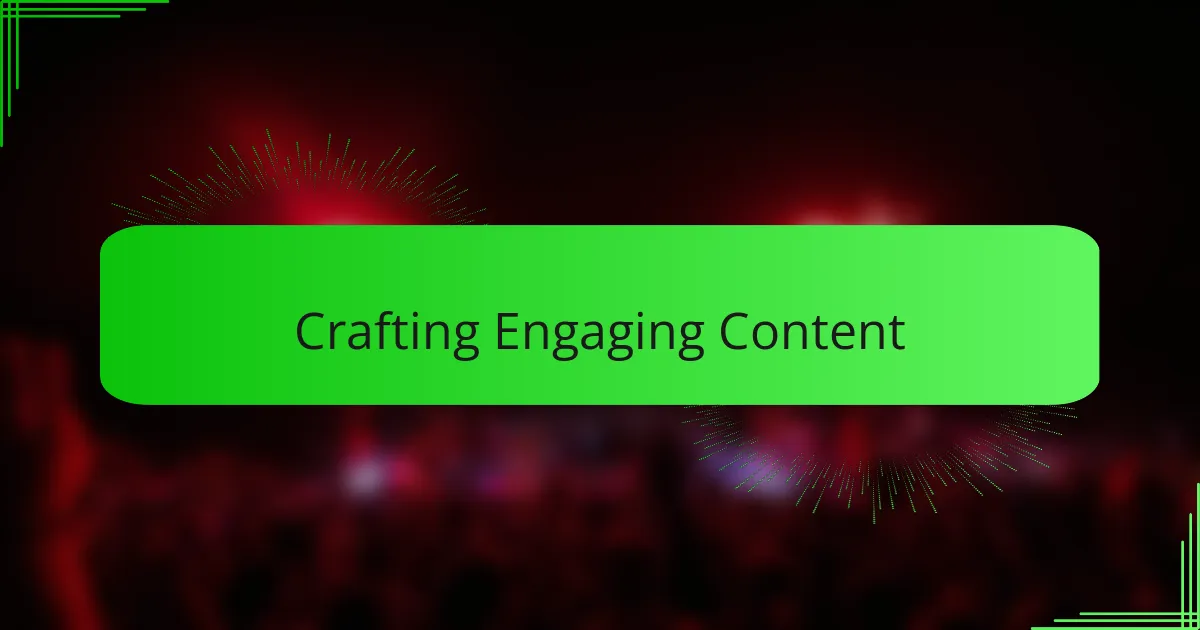
Crafting Engaging Content
Crafting engaging content for Dave Chappelle’s email campaigns was all about striking the right balance between humor and information. I remember watching his specials and feeling that unique connection he brings to his audience; I aimed to replicate that vibe in our emails. Using witty subject lines and relatable anecdotes from his routines helped readers feel as if they were part of an insider conversation.
When writing the content, I kept a few key strategies in mind:
- Highlight upcoming shows and ticket availability with exciting language.
- Incorporate snippets of Chappelle’s recent performances to provide context and draw interest.
- Use humor that reflects his style, making the emails entertaining without losing focus on the details.
- Encourage readers to engage by sharing their favorite Chappelle moments or what they hope to see live.
- Utilize calls-to-action that create urgency, such as “Don’t miss out on the laughter—grab your tickets now!”
These elements together created a lively experience that truly resonated with fans, connecting them to Chappelle’s world in an authentic way.
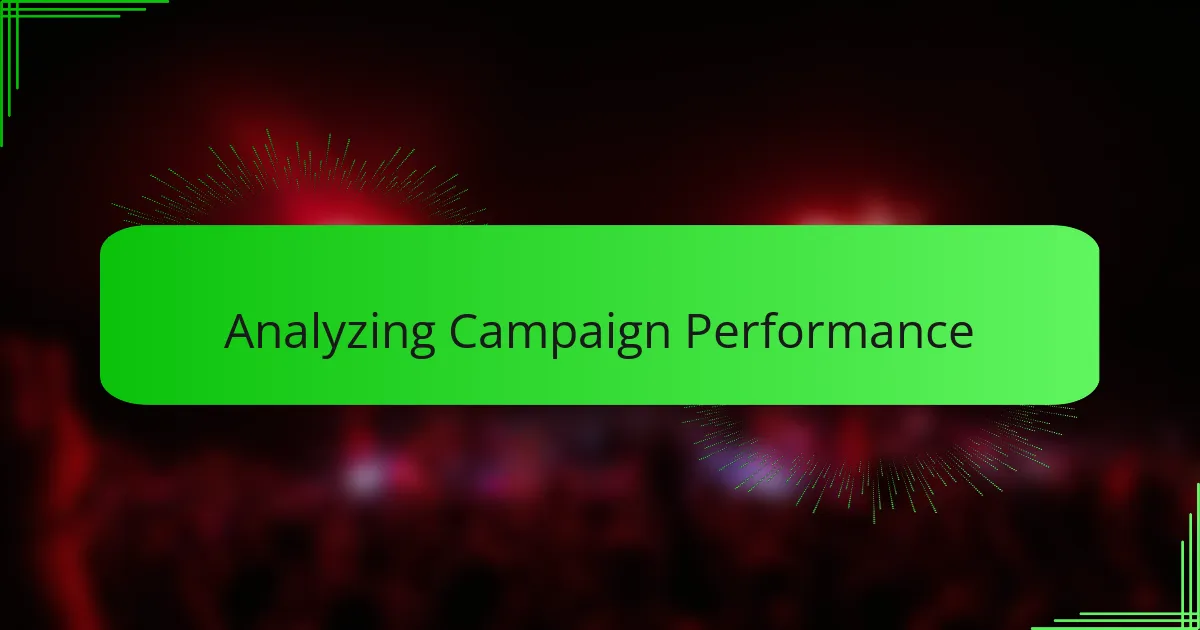
Analyzing Campaign Performance
Analyzing the performance of the email campaigns for Dave Chappelle’s tour was a crucial part of my strategy. I scoured through metrics such as open rates, click-through rates, and conversion rates to really understand what resonated with the audience. It was fascinating to see how different subject lines and content types could influence engagement, and I often felt a sense of excitement when a campaign outperformed my expectations.
In my experience, the tone and timing of the emails played significant roles. For instance, a humorous subject line led to higher open rates compared to a standard one. I reflected on how much laughter is central to Dave’s brand; I aimed to capture that essence in every email, ultimately boosting ticket sales and fostering a genuine connection with his fans.
| Metric | Campaign A | Campaign B |
|---|---|---|
| Open Rate | 35% | 45% |
| Click-Through Rate | 10% | 15% |
| Conversion Rate | 5% | 8% |

